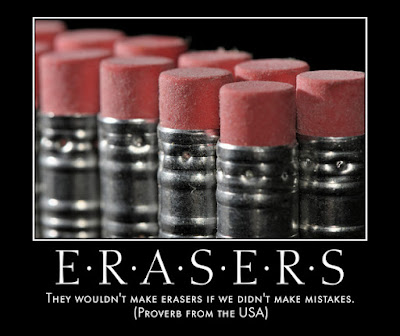Feedback Strategies
Giving Creative Feedback – A Guide for Those Who Aren’t Creative ~ Read here
This article reminded me of a feedback process that I learned about in choreography class last spring. It was known as the Critical Response Process, and it delineated four clear steps that should be taken when we approach giving feedback. One of these steps is asking something called "neutral questions," which are questions framed in a non-judgemental way that are supposed to stimulate the creator of a work to think about the choices they have made and how these choices reflect their vision. A similar idea is presented in this article, and the concept is framed as "probing questions," which help to communicate how the designer of a piece thinks that it will accomplish their intended objectives. Asking questions allows the creator to think critically about aspects of their work that they may not have considered, and this allows them to become an active part of the feedback process. Rather than simply listening to someone else talk about what they have experienced with the work, the creator is able to talk about their process and engage with it in a new way.
21 Components of Effective Feedback ~ Read here
The concept that stood out to me the most in this article was the idea of getting feedback from multiple sources. Whenever I write papers, I always ask several people to look at them and offer feedback, and this allows me to hear a variety of perspectives and gather a greater pool of information regarding how I might be able to effectively alter or improve my work. Because every person engages with the work you present them differently, they will each provide unique thoughts that can help stimulate a larger amount of overall growth. The concept of providing feedback that is easy to understand also stood out to me in this article. Veiling feedback in fancy language or not providing clearly articulated thoughts can make it difficult for a creator to use feedback to their benefit. Precise and honest wording allows the creator to understand feedback more effectively, thus allowing them to utilize it to its fullest advantage.
This article reminded me of a feedback process that I learned about in choreography class last spring. It was known as the Critical Response Process, and it delineated four clear steps that should be taken when we approach giving feedback. One of these steps is asking something called "neutral questions," which are questions framed in a non-judgemental way that are supposed to stimulate the creator of a work to think about the choices they have made and how these choices reflect their vision. A similar idea is presented in this article, and the concept is framed as "probing questions," which help to communicate how the designer of a piece thinks that it will accomplish their intended objectives. Asking questions allows the creator to think critically about aspects of their work that they may not have considered, and this allows them to become an active part of the feedback process. Rather than simply listening to someone else talk about what they have experienced with the work, the creator is able to talk about their process and engage with it in a new way.
21 Components of Effective Feedback ~ Read here
The concept that stood out to me the most in this article was the idea of getting feedback from multiple sources. Whenever I write papers, I always ask several people to look at them and offer feedback, and this allows me to hear a variety of perspectives and gather a greater pool of information regarding how I might be able to effectively alter or improve my work. Because every person engages with the work you present them differently, they will each provide unique thoughts that can help stimulate a larger amount of overall growth. The concept of providing feedback that is easy to understand also stood out to me in this article. Veiling feedback in fancy language or not providing clearly articulated thoughts can make it difficult for a creator to use feedback to their benefit. Precise and honest wording allows the creator to understand feedback more effectively, thus allowing them to utilize it to its fullest advantage.
Mistakes are a part of life; we can always clear a new slate for ourselves. Source: Padlet




Comments
Post a Comment